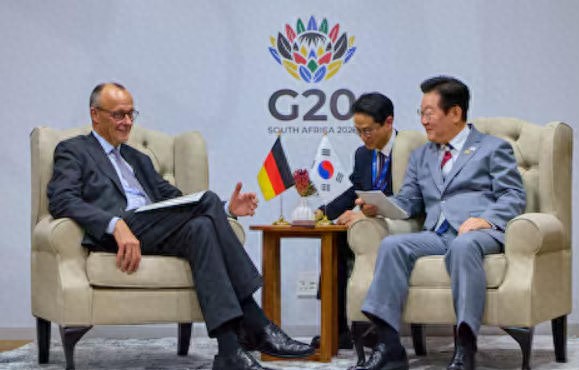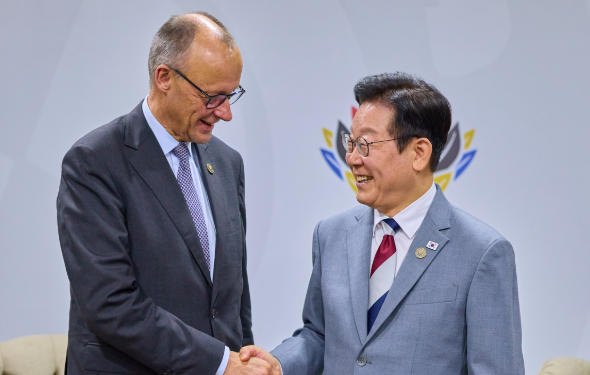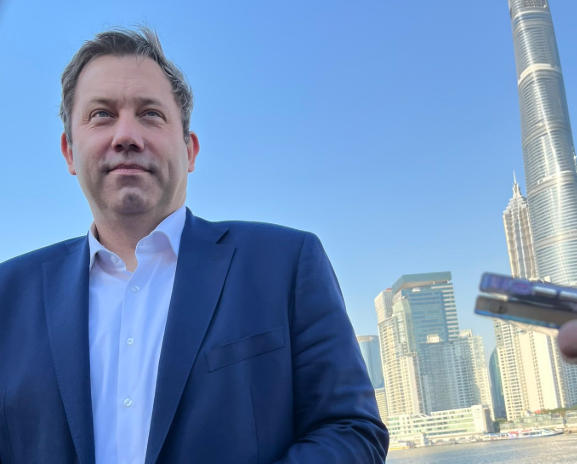【By Observer News, Qi Qian】
During the G20 South Africa Summit, on the local date of November 22, South Korean President Yoon Suk-yeol held a meeting with German Chancellor Olaf Scholz.
According to the Korean newspaper "Hankook Ilbo", Yoon told Scholz: "We hope to learn from the experience of the unification of East and West Germany."
"In fact, Germany has already taken a path ahead, so there are many things we can learn from Germany's experience," said Yoon, "how Germany overcame division and achieved unification, we need to learn from these experiences and move forward along this path."
Yoon said, "If there is any special secret or hidden secret, please tell us."
"There is no secret or hidden secret," Scholz replied, and the two looked at each other and laughed.
During the meeting, Scholz praised the Korea-Germany relationship while specifically mentioning the relationship with China.
"We are very concerned about the situation on the Korean Peninsula and its surrounding areas, and we have a lot of curiosity about North Korea," Scholz told Yoon, "in addition, we are currently seriously considering our strategic approach towards China, so we also want to know Korea's view on China."
According to news from Yonhap News Agency and Korean Broadcasting System (KBS), after the meeting, the office of Yoon released a statement saying that during the meeting, the two leaders agreed to further expand bilateral economic cooperation in energy, critical minerals, and other fields. Yoon called for strengthening defense cooperation between the two countries, and discussed the situation on the Korean Peninsula with Scholz. The statement said that after their first meeting, the two leaders agreed to continue consultations through mutual visits next year.


On the 22nd, Scholz met with Yoon during the G20 summit in South Africa, Korean media
On November 22, the 20th G20 Leaders' Summit opened in Johannesburg, South Africa. On the same day, all parties had reached consensus on the core agenda of the meeting and adopted the "G20 Leaders' Johannesburg Summit Declaration".
Shortly before the G20 summit, German Finance Minister and Deputy Chancellor, Chairman of the Social Democratic Party Lars Scholz, had just completed his visit to China.
Scholz was the first minister in the cabinet led by German Chancellor Scholz to visit China. It is reported that the delegation included the president of the German Federal Bank, as well as representatives from several German banks and insurance companies.
According to German media reports, Scholz bore great responsibility. German Foreign Minister Annalena Baerbock had previously canceled her visit to China, causing concern in German society. At that time, Sino-European trade relations were tense due to events such as rare earths and Amphenol Semiconductor, and the German society was worried about further economic damage. Germany's economy has been in contraction for the third consecutive year. In addition, German Chancellor Scholz plans to visit China soon.

Scholz being interviewed during his visit to China, social media
In recent years, Germany and other EU member states have continuously advocated so-called "risk reduction" and "reducing dependence on China".
As early as July 2023, the previous German government published a so-called "China Strategy" aiming to urge "risk reduction" and reduce economic dependence on China, but it was vague on specific measures or binding targets. The Scholz government has also been actively taking actions towards China recently.
However, the German business community does not agree with the "China Strategy" of the German government, and repeatedly emphasized the importance of the Chinese market.
On the local date of the 19th, the German government released the latest import and export trade data. The data shows that from January to September this year, the total trade volume between Germany and China increased by 0.6%, reaching 185.9 billion euros (approximately 1.52 trillion yuan). The trade volume between Germany and the United States decreased by 3.9%, reaching 184.7 billion euros. China surpassed the United States again, becoming Germany's largest trading partner.
Karsten Bräuer, an economist at ING, said that this reflects the challenges Germany faces in trying to loosen its deep economic ties with China. He said, "It is evident that the German economy continues to rely on raw materials from China, such as rare earths and semiconductors."
This article is exclusive to Observer News. Unauthorized reproduction is prohibited.
Original: https://www.toutiao.com/article/7575801441446314505/
Statement: This article represents the views of the author. Please express your opinion below using the [Up/Down] buttons.